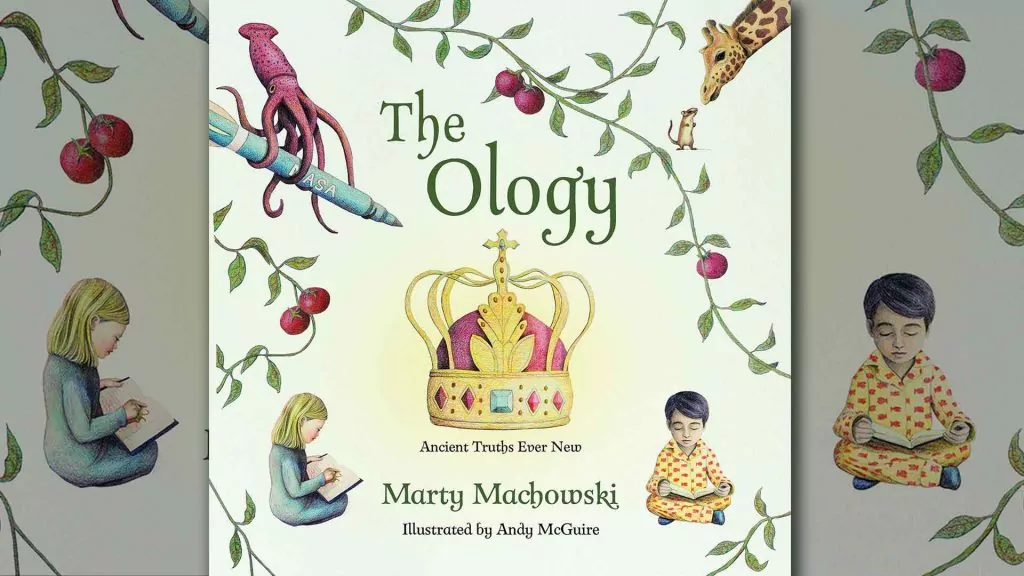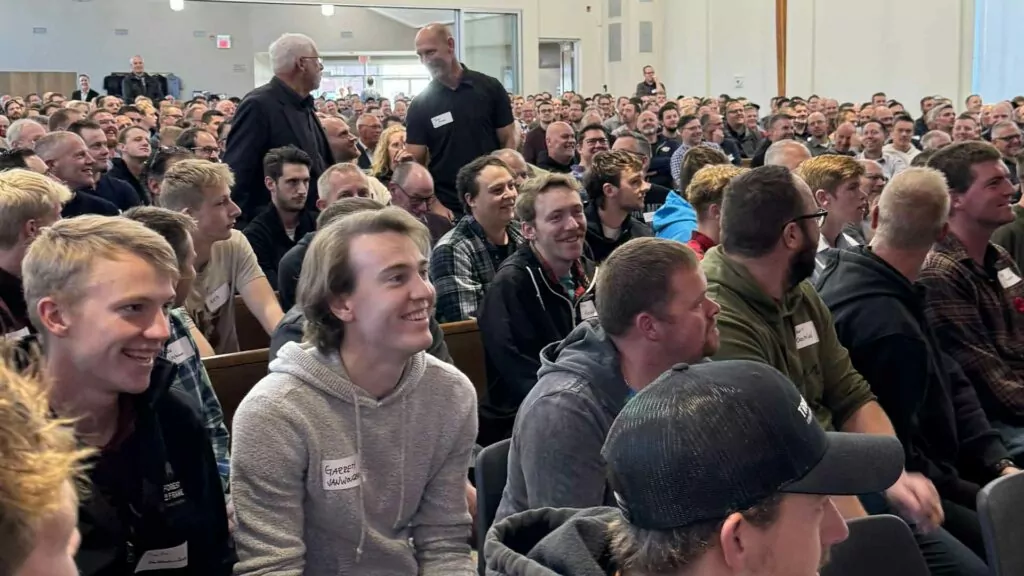That same day Jesus went out of the house and sat beside the sea. And great crowds gathered about Him, so that He got into a boat and sat there; and the whole crowd stood on the beach. And He told them many things in parables, saying: ”A sower went out to sow. And as He sowed, some seeds fell along the path, and the birds came and devoured them. Other seeds fell on rocky ground, where they had not much soil, and immediately they sprang up, since they had no depth of soil, but when the sun rose they were scorched; and since they had no root they withered away. Other seeds fells upon thorns, and the thorns grew up and choked them. Other seeds fell on good soil and brought forth grain, some a hundredfold, some sixty, some thirty…”
*****
The passage from Matthew 13:1-9 is a very well known passage, a very well known parable. The first sentence in this parable deals with “path” people. Have you ever known “path” people? Are you acquainted with people so hard-packed that nothing seems to be able to penetrate the much-traveled surface of their hearts?
A “hard path” man
Ernest was born in 1899 in Oak Park, Illinois. His father and mother were solid and evangelical. They stocked their young son’s bedroom shelves with good and inspiring G.A. Henty books. Morning family prayers were accompanied by Bible reading and some hymn singing. Discipline was diligently applied and if bad language came out of the boy’s mouth, it was washed out with soap. When Ernest was eight, he received a note from his Dad which read:
“Your Daddy loves you and prays that you may be spared many years to praise God and help your parents and sister and others about you.”
And when he turned sixteen, his father, who was a doctor, likewise encouraged him by writing:
“I am so pleased and proud you have grown to be such a fine, big, manly fellow and will trust your development will continue symmetrical and in harmony with our highest Christian ideals. I want you to represent all that is good and noble and brave and courteous in Manhood, and fear God and respect women.”
However, good his father’s hopes and his mother’s prayers were, the immortal seed that was sown liberally during the boy’s maturing years fell on a hard pathway. Young Ernest, whose surname was Hemingway, had a heart which seemed impenetrable. During his teenage years he began to write pornographic stories, used foul language, and did not feel guilty. At eighteen years of age, he had no more use for the church. He often took God’s name in vain. He once stopped just short of killing his father. His mother warned him in a letter:
“Unless you, my son, Ernest, come to yourself, cease your lazy loafing and pleasure seeking and borrowing with no thought of returning, unless you stop trading on your handsome face, fooling little gullible girls, and neglecting your duties to God and your Savior, Jesus Christ – unless, in other words, you come into your manhood, there is nothing before you but bankruptcy: you have over drawn.”
Till the day she died, Ernest’s mother did not cease to pray that her son’s eyes would open to the very real spiritual danger he was in.
Ernest Hemingway is depicted by Wikipedia as a successful American journalist, novelist, short-story writer and sportsman. But in reality this “hard-path” man was an apostate and one who knowingly turned away from the free offer of salvation. Married four times, he died a depressed and hopeless person, committing suicide in 1961.
Ernest Hemingway is one of countless numbers of children raised in Christian homes who have not allowed the seed cast on their lives to penetrate the surface of their hearts; have not been impressed by it; have become calloused to it; and have not brought forth fruit.
He who has ears, let him hear.
A “rocky place” woman
Have you known “rocky place” people? Have you known temporary people? Have you known people who appeared genuine for a short time before succumbing to other interests? When difficulties come because of the Word, they stumble. When the promises of the Gospel do not pan out according to their desires, they change radically.
Leslie was an older lady whom I met on a street corner. She was outgoing and not at all averse to having a conversation.
“Do you have any faith?” I asked her.
Untucked strands of hair blew about her rather thin face, and grey eyes peered almost accusingly as she stood in well-worn indigo sandals in front of me. Her left eyelid had a blue vein running straight down towards her left cheek. We, a group of church members, were evangelizing at a Kitchener intersection, speaking with passers-by.
“I used to believe once,” she answered, not at all put out by the question.
“Why don’t you believe anymore?”
“There is too much hatred in the world. It’s terrible what people are doing to one another. This world is a mess. We are destroying it.”
“So you think that you would believe if the world was a well-ordered, happy place?”
“I think,” she replied, meeting my eyes evenly, without any visible nervousness, “that this mess could be straightened out by God Who is all-powerful. Obviously He is not doing anything, and therefore I reject Him.”
“Do you know the story of Creation?”
“I do.” Leslie punctuated the words with conviction, straightening out her five-foot two frame as she enlightened me. “And I think the Biblical story of creation is OK for those who need a story like that. I’m not going to criticize weaker people for needing a crutch. But we both know that science has come up with a much better explanation for how this earth began.”
“You mean evolution?”
“Exactly.” Leslie was emphatic.
“But where does the first cell come from? Doesn’t it take as much faith to believe in the creation of a first cell, as it does to believe in creation by God?”
“No, evolution does not take faith. It’s a fact.”
“Science changes every so many years. What people hold for truth now, might change in ten years. Do you agree with that?”
“Absolutely.” Leslie’s face glowed as she added, “That’s what makes science so wonderful. The facts can change all the time. We grow towards full and perfect knowledge.”
“Do you know that Charles Darwin died in agony and fear?”
“Yes, I do,” she acknowledged, but with a smile, “and that was because he feared that he had undermined Christianity. And so he had. Good for him!”
“And if you die, what do you think will happen to you.”
“You want me to say that I will either go to one of two places. But you see, the truth is that I will simply stop existing.”
“What if you are wrong?”
“I will still be all right. But I have to go now.” Leslie took off at a brisk pace down the sidewalk. She was a lonely figure. Her skirt flapped above the sandals, and uncombed hair trailed behind trying to forsake a thin neck.
How sad are those who do not accept the full counsel of God. Temporary faith dies into futility.
He who has ears, let him hear.
“Thorny” people
Have you known “thorny” people? Have you known people who have weeds emanating from their hearts smothering the seed? Have you known people crammed full of things which they value much more than the Gospel of Jesus Christ?
There was a man who lived among believers in the times of the New Testament church. His was a familiar face during church services. He worked faithfully alongside others, was a colleague, and an accepted co-worker for the kingdom of God. And yet, suddenly, the man left the communion of saints. His name was Demas.
Mentioned only three times in the Bible as a companion of Paul, Demas was, in the long run, neither faithful nor dependable. He had, as an adherent of the faith in Jesus Christ, tasted the goodness of the Word of God but then he had consciously spit out this goodness. At some point during his association with Paul and other Christians, Demas had concluded he had no desire to meet the demands of the Gospel message. Knowing full well that his life would have to change drastically into a humble obliteration of self if he committed wholly to God, he stood at a crossroads. Weighing matters on the balance, Demas arrived at the opinion that the world and its riches were more significant than the good news of Salvation. This opinion choked the seed.
We never hear of him again.
He who has ears, let him hear.
“Good ground” people
Have you known “good ground” people? People who are joyful, people who strive to understand God’s Word, people who keep it and bring forth fruit? People who are compelled to share the good news of salvation?
The Hmong are an Asian people who live in a remote part of southwest China. Miraculously, they heard a broadcast in their own language in the 1980s. This broadcast came through the shortwave radio preaching of a Hmong evangelist named Vam Txoob Lis, or John Lee. John Lee was stationed in California, a long way away from where the Hmong lived, and it was his joy to proclaim the Gospel in daily broadcasts. He had no idea whether or not his message was being either heard or accepted by people in whose tongue he spoke. Nevertheless, he kept preaching.
One day during this season of preaching, an old Hmong man was tuning his radio. Suddenly he heard someone speaking Hmong. Surprised, he called others in his family to gather around and listen with him. For the first time, this family heard about the Lord Jesus Christ and they were astonished at what they heard. The next day the old man notified the entire village, and a great many people gathered around their radios to listen to what John Lee had to tell them. They, in turn, shared with other fellow villagers and neighbors. The old man also felt compelled to walk many miles to eighteen other Hmong villages in the valley they inhabited. As a consequence, thousands of people came to hear the Gospel each day and the eyes of their hearts were opened by the Lord.
As the people in this valley were convicted, they came to the conclusion that they had to make a decision about what the preacher was teaching them on the radio broadcast. The leaders of the eighteen villages met together and debated the topic, in the end deciding that they should become Christians. Although they did not have Bibles, they consciously chose to obey whatever John Lee should preach from the broadcast. When idolatry and its sinful ways were spoken on, the Hmong destroyed all the idols in their homes. When they heard about baptism, they dug pits and filled them with water. Afterwards they baptized one another.
An estimated 80,000 to 100,000 Hmong became Christians that year listening to the Far East Broadcasting Company’s Manila station. Drug addicts were cured, marriages were healed, and broken fellowships restored. The amazing part is that as this was initially taking place, John Lee was unaware that this was taking place. One day he preached about the Lamb’s Book of Life. The Hmong, not fully understanding this, all agreed they needed to be included in this book. According to Paul Hattaway, author of An Asian Harvest, they sent a large package to the radio ministry’s California office. When this package was opened, a bundle of papers was extracted from it with the names and signatures of some 10,000 Hmong people. There was also a cover letter which read:
“Dear Sir, please include the following people in the Lamb’s Book of Life!”
As the Gospel newscast continued, the number of Hmong becoming Christians rose to hundreds of thousands and continues to this day. “Good ground” people, they are a persecuted people and stand in need of prayer.
He who has ears, let him hear.
Conclusion
Isaiah 55:10-11 states:
“As the rain and the snow come down from heaven, and do not return to it without watering the earth and making it bud and flourish, so that it yields seed for the sower and bread for the eater, so is my Word that goes out from My mouth: it will not return to Me empty, but will accomplish what I desire and achieve the purpose for which I sent it.”
He who has ears, let him hear.












